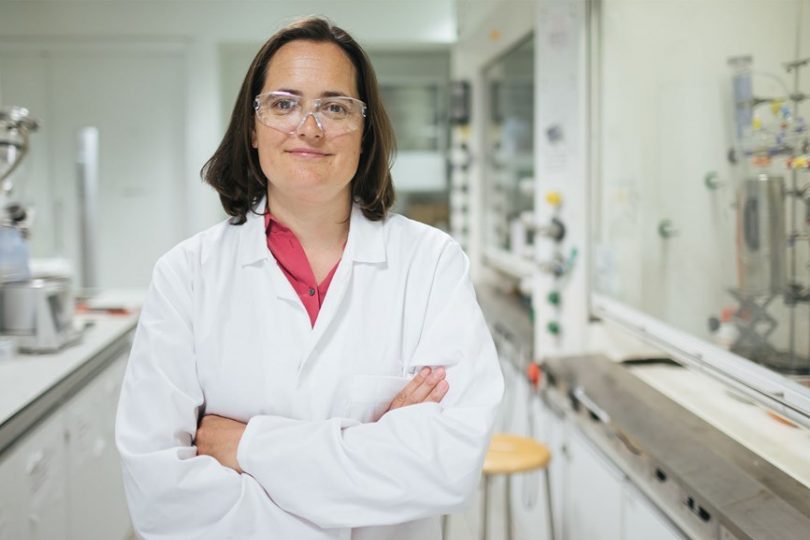
Professor Charlotte Williams OBE has been awarded the Tilden prize from the Royal Society of Chemistry, celebrating the most exciting chemical science taking place today. Professor Williams was awarded the prize to honour her contributions to sustainable polymer chemistry.
My bigger dream and motivation is to understand the science underpinning pollution and to try to design better polymers for the future.
Professor Williams' research interests include metal complexes as homogeneous catalysts to make polymers, fuels and materials. Her motivation is discovering ways to use and recycle renewable resources, such as plants or carbon dioxide, to make useful products such as polymers. Professor Williams leads the Oxford Martin Programme on the Future of Plastics.
In the area of inorganic chemistry, her group's research includes the preparation of new metal complexes, their use in homogeneous catalysis, uses of in situ spectroscopy for catalyst characterisation and analysis of the reaction kinetics. Recently discovered catalysts include complexes of transition metals, lanthanides and main group elements.
Her group is also involved in polymer preparation, the exploration of materials' properties and the assessment of future applications. They are particularly interested in new oxygenated polymers, such as polyesters/carbonates, and in developing methods to prepare, reuse and recycle polymers as products from bio-refining, industrial wastes and biomass so as to improve sustainability. In collaboration with other research groups worldwide, the new polymers have been evaluated for applications including as rigid plastics, elastomers, coatings, adhesives, fibre-reinforced composites, matrices for tissue engineering, antimicrobial surfaces and as self-assembled nanostructures in controlled release.
An interview with Professor Williams
What motivates you:
Problem solving, working in teams, experimental science, working to make a difference in the world and training early career researchers. My bigger dream and motivation is to understand the science underpinning pollution and to try to design better polymers for the future.
What advice would you give to a young person considering a career in chemistry?
Chemistry is the right choice for anyone motivated to solve environmental problems because it delivers the scientific tools to properly understand the issues and the ability to make change and deliver solutions at an appropriate scale. Chemists innovate and invent across the length-scales from the atomic, through the nanoscale up to the level of designing and understanding the physical objects and materials in our world. It’s a science that is both intellectually fascinating and satisfies the desire to make a difference and deliver real change. Chemists make things and are very pragmatic and solution focused – it’s a truly inspiring science and with the whole periodic table to experiment with you can never be bored.
Why do you think teamwork is important in science?
Teamwork is essential because most important problems are too large, difficult and complex for one person to fully understand, let alone solve. By working together, particularly across areas of different expertise, we can truly break new ground as well as arriving at solutions much quicker than by working in isolation. Chemistry is a very sociable science and most of our working day is spent working together in the laboratory and discussing our findings with collaborators across the world. Chemistry’s tremendous application potential also means that we work across and throughout business supply chains.
What is your favourite element?
My favourite element is magnesium, which is a key catalyst in carbon dioxide transformations, like heterocycle/carbon dioxide copolymerisation, as well as being integral to nature’s carbon dioxide fixing enzyme Rubisco. Its coordination chemistry is underappreciated, but it can be a useful and cooperative partner with transition metals.
This interview originally appeared as part of the Royal Society of Chemistry's 2021 prizes celebrations.